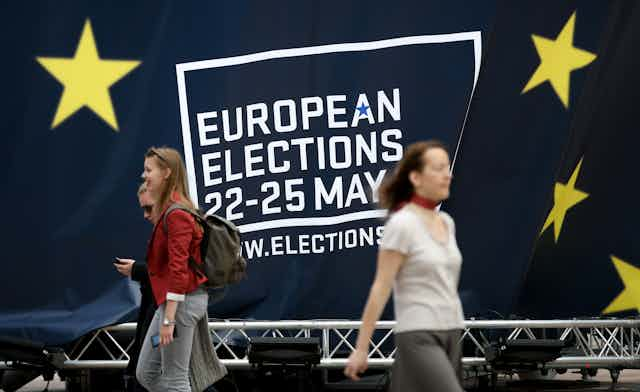Taking back control from an anti-democratic EU is a central theme of the EU referendum leave campaign. But, in fact, stories about Brussels dictating our lives are overblown at best, and deeply misleading at worst.
Here are four ways that every citizen can influence the European Union.
Voting at home
The most obvious way in which UK citizens influence the EU is by voting in British elections. Over decades elected representatives have approved the EU’s current shape and powers by voting with solid majorities for each treaty change and giving effect to supranational law.
National ministers appointed through general elections wield significant power in the day-to-day running of the EU. They make up the Council of Ministers, which plays a major role in setting legislation. And national leaders are responsible for strategic direction via the European Council.
Aside from this, the UK retains the power to make its own decision in the areas most sensitive to UK citizens. That includes taxation, pensions, health and defence.
It is true that the UK does not always have its way in Europe, but as my LSE colleagues have shown, British governments have voted with the winning majority in 87% of the votes held between 2009 and 2015. So the idea that the UK is regularly being “dictated to” is misleading.
If citizens are unhappy about Brussels policies, they can make a big difference by electing a British government with different ideas for what it wants to do when wearing its EU-hat.
European elections
Then there are the elections to the European Parliament. These take place every five years, giving the British people – like all other EU citizens – the chance to directly choose their representatives in Brussels according to a system of proportional representation, benefiting smaller parties such as UKIP and the Greens.
The parliament has real power to block or change legislation in most areas. It also has increasing power over the European Commission as the regulator and proposer of new legislation. The parliament has used resolutions and its budgetary powers to influence policies even if it does not have the formal power to do so.

Even more significantly, the European Parliament has now significant power over who will be appointed president of the European Commission. In 2014, each of the major party groupings had a policy manifesto and ran a nomination process for candidates for commission president. When the European Peoples Party emerged as the winner, its candidate, Jean-Claude Juncker, was duly elected president.
The fact that national governments, after initial hesitation, agreed to this, marked a significant improvement from previous practice when governments nominated commissioners and elected by consensus a president (and the parliament could only say yes or not to the whole commission).
So if citizens do not like the commission president or his/her team, they can participate through their national parties in the nomination process of the candidates and then vote at the next European Parliament election for the party grouping with the most convincing person and manifesto.
Moreover, the parliament takes its role seriously when it comes to holding the commission to account. In 1999, it forced the whole commission to resign in the wake of a corruption scandal. It can do so again with the support of transnational investigative journalism that can expose wrong-doing as it does in a national arena.
The power of the crowd
The general public also has the Citizens Initiative as a last avenue of influence. The European Commission is obliged to consider new legislation on a particular issue if it is backed by at least one million EU citizens, coming from at least seven of the 28 member states. Even though if it does not force the commission to actually legislate, it is a powerful tool to put issues on the agenda.
Take an interest
Finally, citizens, civil society actors as well as the media need to more closely scrutinise what happens in Brussels. This is how you prevent ministers from “saying one thing in Brussels, and another thing to the domestic audience”, as Boris Johnson claims they do as if this was something that could not be challenged or changed.
It has been argued that the House of Commons’ scrutiny of European affairs has been weak and many MPs have lacked the motivation to invest time in the job as they feel it wouldn’t attract much attention from the press and therefore would not be appreciated by the general public. This can be changed.
The media should also report more extensively and accurately about who makes the decisions in Brussels and what the consequences are for the rest of Europe.
As we have seen, the European Union has evolved over the years to allow for more participation of citizens over who governs and for what purpose, sometimes against the initial resistance of some national governments who see democracy in Europe as a zero-sum game - if you win, I lose. However, as the current referendum debate shows, national politicians can suffer from blaming faceless “Brussels” rather than taking full responsibility for their decisions.
Building a more democratic Europe is a process that starts at the national level, but cannot stop there. As long as Britain is a member of the EU its citizens retain the opportunity to engage and shape this process. Choosing to leave would not automatically enhance democracy either, if Britain became like Norway to safeguard its access to the Single Market. In this case it would still be governed by the EU in many areas of the Single Market and participate in freedom of movement without having a formal say in the EU’s core institutions or influence its future direction.

